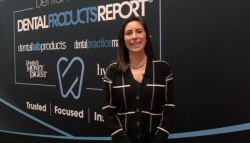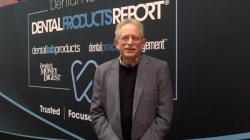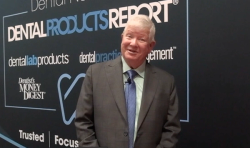- About Us
- Advertise
- Editorial
- Contact Us
- Terms and Conditions
- Privacy Policy
- Do Not Sell My Personal Information
© 2025 MJH Life Sciences™ and Dental Products Report. All rights reserved.
Drs. outline impressive ROI with these two CAD/CAM products
There are a variety of factors that recommend CAD/CAM as a technology of choice for those looking for a good return on investment. Realizing that return hinges on a rather unpredictable variable: the user.
There are a variety of factors that recommend CAD/CAM as a technology of choice for those looking for a good return on investment. Realizing that return hinges on a rather unpredictable variable: the user.
Committing to the proper training, committing to the marketing and education around “same-day dentistry” and committing to a new workflow are critical and require not just doctor enthusiasm, but buy-in from the entire team.
For those who do commit, the results are impressive. Consider these stories…
Dr. Robert Willis on D4D Technologies’ E4D Dentist System*
We’re moving into an era where we have an increasing number of dentists who have CAD/CAM milling machines, and those users are not using traditional dental labs as before. If you have CAD/CAM, my preference is that anything you pay out, including the monthly charge for the machine and the cost of supplies, goes under a subcategory:
lab fees.
If you were providing laboratory restorations and weren’t using that machine, you’d be paying a lab fee. In the past, most have filed CAD/CAM monthly payments under equipment and CAD/CAM supplies under dental supplies, when in actuality, they are neither. That particular piece of equipment has a specific use and it’s really a laboratory use function.
For tracking actual operating expenses, we have long recommended that practices include payments for the CAD/CAM equipment and all CAD/CAM supplies, and categorize them under laboratory expenses. Because you want to compare “apples to apples,” you must keep all laboratory expenses together.
I once worked with a client who asked me to create a long-term plan on positioning their practice. One of their practice operating expenses was laboratory, which, at the time, was running about $9,400 a month for outside lab services, mostly fixed prosthetics and
crown and bridge. They were discussing the “cost” of the new CAD/CAM, which was more than $100,000 at the time. The large number had them concerned.
We discussed “cost” versus “investment return,” and once the comparison was calculated, the decision was made to move ahead. The month following the introduction of their CAD/CAM machine was an eye-opener.
Outside lab expenses dropped to just less than $1,500: a $7,900 drop. CAD/CAM-related costs were about $3,600: a net gain of $4,300. They were elated, but soon
found that was only part of the story. The marketing value from having the equipment was useful in attracting additional patients. They did more onlays and an occasional
inlay, and they did more quadrant treatment on patients because it was convenient for the patient.
Fast forward to 12 months: the practice realized a net gain compared to the previous 12 months with outside lab services of just more than $63,000. I’m not sure where else in your practice you can do the same procedure and increase the revenue to that extent.
The most significant positive impact CAD/CAM has had on a practice has been financially. In most practices, a CAD/CAM machine can replace 75% or more of the
lab costs. This should result in a significant increase in net profit without affecting production. It’s a real “nobrainer” if you provide restorative and crown and bridge
services in your practice.
Dr. Mark Nadler on Sirona Dental System’s CEREC
I bought my first CEREC CAD/CAM unit in 1990. I acclimated myself to the system by forcing myself to use it. Keep in mind, at the time it was “only” $50,000 - I wanted to make sure I got the most out of it. So, every day at lunch, I practiced on a typodont
and did one restoration. Once I felt comfortable, I started a promotion with my patients where I offered to do a procedure for the first 25 users at 50% of the cost. Within 30 days
I’d done 25 restorations on people. That experience was essential to overcoming my learning curve.
At that point, we started to very closely track the work we performed using CEREC. In 18 months, I’d billed $150,000 worth of inlays, onlays and crowns. That feels like 100 years ago, but we still have the same level of success and return now, even with all the upgrades we’ve paid for. The technology pays for itself, it really does.
When I attended the Driven to Excellence seminar, there wasn’t a lot of technology we hadn’t incorporated - not only CAD/CAM, but digital imaging, lasers and other core equipment. What our experience at DTE brought to the forefront was the need to make patients more aware of the technology we do have. It is a great selling point for us: We are redefining what dentistry can be in the patients’ eyes. With CEREC, we can do
a crown in one visit, or we can do quadrant dentistry more efficiently, in one hour instead of two. We help people fit optimal treatment into their schedules. So, besides the obvious “wow factor,” it is just a less invasive, more pleasurable experience.
As my colleagues evaluate technology for ROI, I would encourage them to ask, “Am I already doing something along these lines?” If I can find a way to do the same type of procedure with a better result -a simpler solution that requires less time -that’s a technology worth looking at.
* Excerpts from an article that originally appeared in Sidekick magazine, submitted by D4D Technologies.



